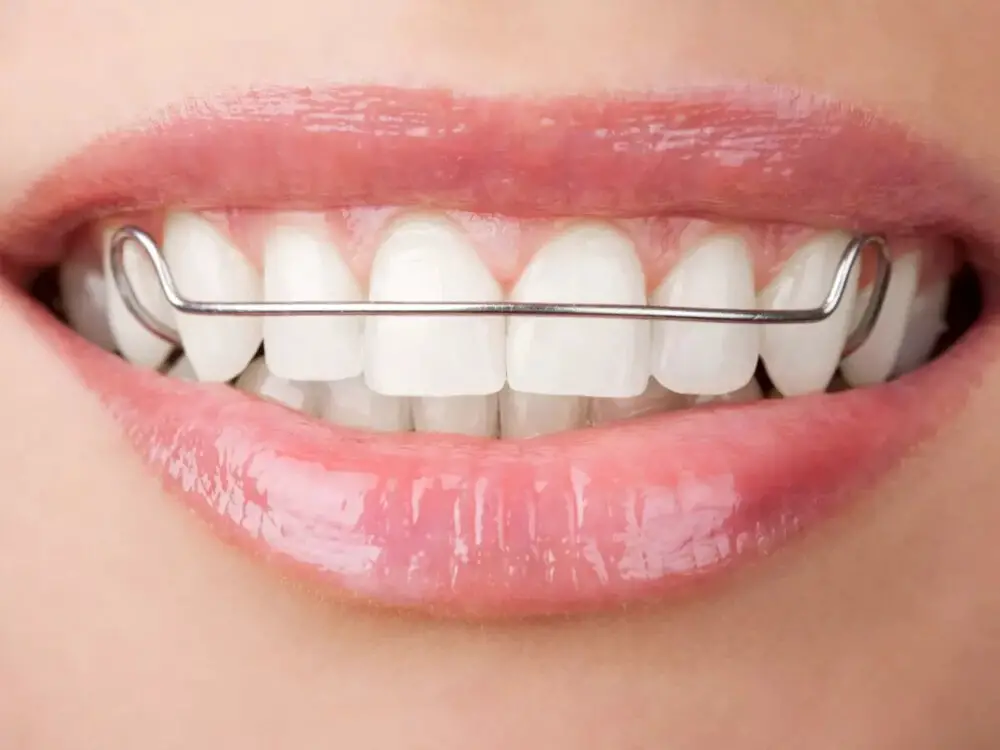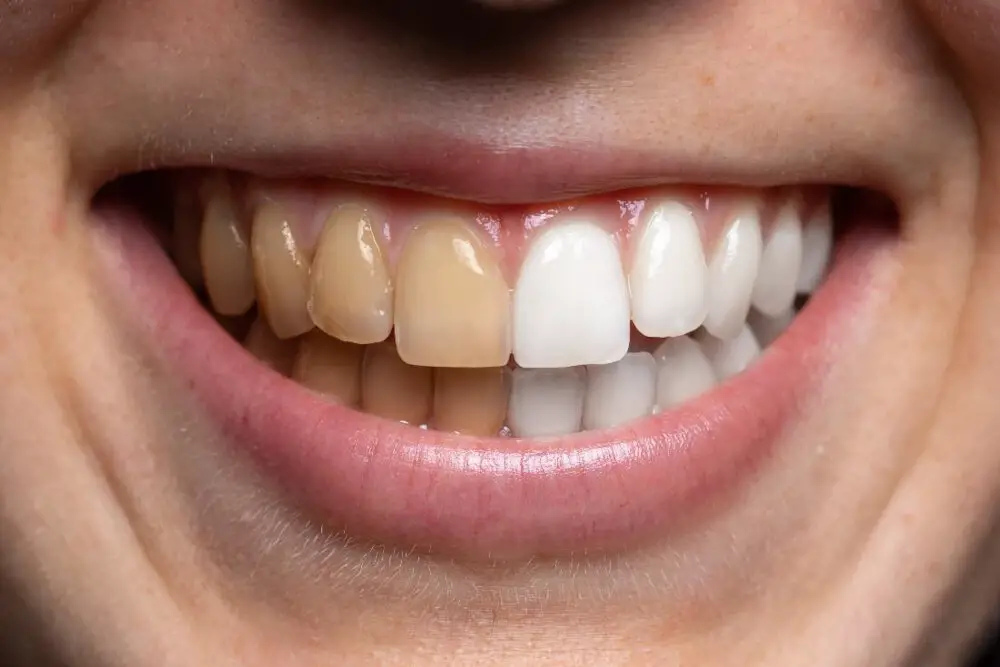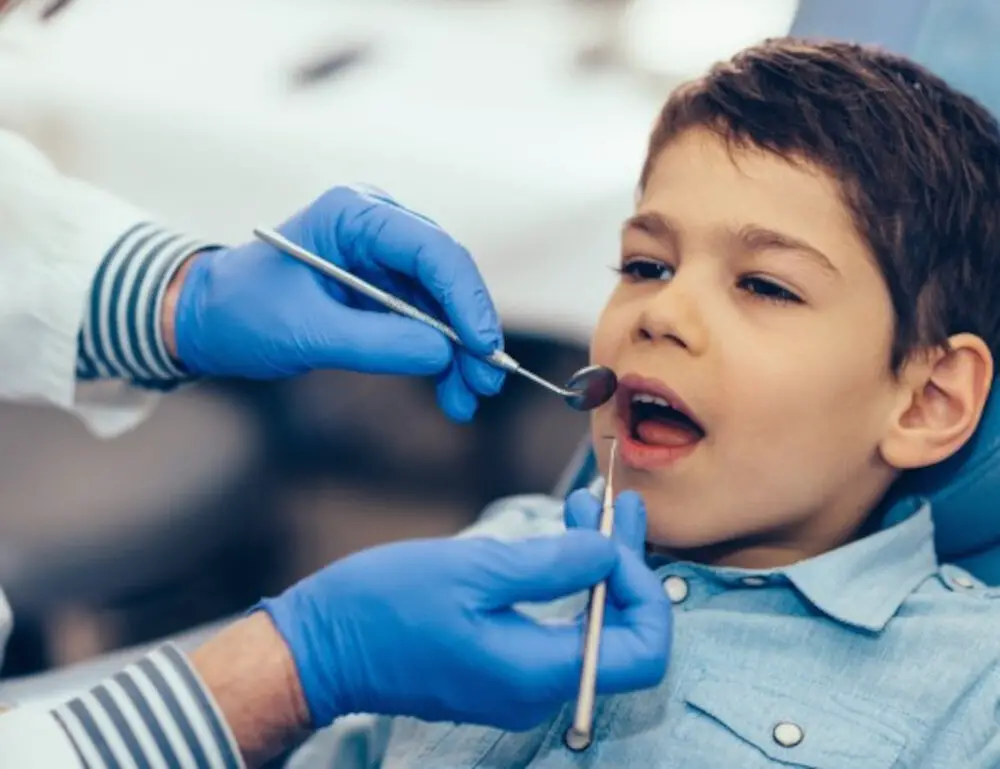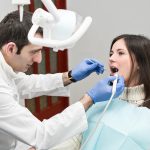At What Age Do Wisdom Teeth Emerge? Explained by Dental Experts

Wisdom teeth are the third set of molars that typically emerge between the ages of 17 and 25. These teeth can cause a lot of pain and discomfort, leading many people to seek treatment from dental experts. Understanding when wisdom teeth emerge and what to expect can help you prepare for this important stage of dental development. As dental experts explain, the emergence of wisdom teeth can vary from person to person. Some people may experience their wisdom teeth coming in as early as age 16, while others may not see them until their late 20s. Factors like genetics, jaw size, and overall dental health can all play a role in when these teeth emerge. Despite these variations, there are some general patterns that can help you anticipate the arrival of your wisdom teeth and take steps to manage any discomfort that may arise.
Wisdom teeth, also known as third molars, are the last set of teeth to emerge in the back of the mouth. They typically appear between the ages of 17 and 25. These teeth were once necessary for our ancestors who had a diet of tough foods that required heavy chewing. However, due to evolution, the human jaw has become smaller, leaving little room for these teeth to emerge. As a result, wisdom teeth often become impacted, meaning they cannot fully emerge from the gums. This can cause pain, infection, and damage to surrounding teeth. In some cases, wisdom teeth may need to be removed by a dental professional.
Knowing when wisdom teeth emerge is crucial for maintaining good oral health. Wisdom teeth, also known as third molars, can cause a variety of problems if not properly monitored. These teeth typically emerge between the ages of 17 and 25, and can cause overcrowding, infection, and decay if they do not have enough room to grow in. Additionally, if they emerge at an angle or partially erupt, they can cause discomfort and lead to gum disease. Regular dental check-ups and X-rays can help dentists monitor the development of wisdom teeth and determine if they need to be extracted to prevent these issues. By being aware of when wisdom teeth are emerging, individuals can take proactive steps to maintain their oral health and prevent potential complications.
The Typical Age for Wisdom Teeth to Emerge

Wisdom teeth are the third set of molars that typically emerge at the back of the mouth in early adulthood. These teeth can cause pain and discomfort if they don’t have enough room to grow properly. The typical age for wisdom teeth to emerge is between 17 and 25 years old. However, this can vary depending on the individual and their genetics. Some people may experience their wisdom teeth emerging earlier or later than the typical age range. In some cases, wisdom teeth may not emerge at all. This can be due to a lack of space in the mouth or genetics. It’s important to have regular dental check-ups to monitor the growth and development of wisdom teeth. If they are causing pain or discomfort, a dental professional may recommend removal to prevent further complications. Overall, understanding the typical age for wisdom teeth to emerge can help individuals prepare for potential discomfort and seek appropriate dental care.
Wisdom teeth, also known as third molars, typically emerge between the ages of 17 and 25. The emergence of these teeth can cause discomfort and pain, as they often do not have enough room to come in properly. In some cases, wisdom teeth may not erupt at all, or they may only partially emerge, leading to infection and other dental problems. Dental experts recommend regular check-ups and X-rays to monitor the development of wisdom teeth, and in some cases, removal may be necessary to prevent complications. Despite the discomfort they may cause, wisdom teeth are not necessary for proper dental function, and their removal can often improve overall oral health.
The age of emergence of wisdom teeth can be influenced by various factors, including genetics, diet, and oral hygiene. Genetics play a significant role in determining when and how many wisdom teeth will emerge. Some people may have all four wisdom teeth emerge in their late teenage years, while others may never get them at all. Additionally, a diet rich in calcium and vitamins can promote healthy tooth development and help wisdom teeth emerge at an earlier age. On the other hand, poor oral hygiene can lead to complications such as impaction, which can delay or prevent the emergence of wisdom teeth. Overall, the age of emergence of wisdom teeth is highly variable and depends on multiple factors, making it important to maintain good oral health habits to ensure a healthy and timely emergence.
According to statistics, wisdom teeth, also known as third molars, usually emerge between the ages of 17 and 25. However, this can vary from person to person and is influenced by factors such as genetics, ethnicity, and jaw size. Some individuals may experience wisdom teeth eruption as early as age 13, while others may not see them until their late 30s or early 40s. Additionally, some people may never develop wisdom teeth at all. Despite the variability, it is important to monitor wisdom teeth development as they can cause pain, infection, and other dental problems if not properly managed.
Signs and Symptoms of Wisdom Teeth Eruption

Wisdom teeth, also known as third molars, are the last set of teeth to develop in the mouth. They typically emerge between the ages of 17 and 25, although some people may experience them earlier or later. Wisdom teeth eruption can cause a variety of signs and symptoms, which can vary from person to person. One of the most common symptoms is pain or discomfort in the back of the mouth. This can be caused by the wisdom teeth pushing against the adjacent teeth or gums, which can create pressure and discomfort. Other symptoms may include swelling, redness, or tenderness in the gums around the wisdom teeth. Some people may also experience a bad taste or odor in their mouth, which can be a sign of infection. Another sign of wisdom teeth eruption is difficulty opening the mouth fully. This can be caused by the swelling or inflammation of the gums around the wisdom teeth, which can limit the movement of the jaw. In some cases, wisdom teeth eruption can also cause headaches, earaches, or neck pain. These symptoms are typically caused by the pressure and tension that the wisdom teeth are placing on the surrounding tissues. If you are experiencing any of these signs or symptoms, it is important to see a dentist or oral surgeon for an evaluation. They can determine whether your wisdom teeth need to be removed and can provide treatment options to alleviate your symptoms.
The emergence of wisdom teeth, also known as third molars, can cause various signs and symptoms that vary from person to person. Some people may experience pain and discomfort in the back of their mouth, while others may notice swelling or redness in the gums. Wisdom teeth can also cause headaches or jaw pain, and in some cases, can even cause earaches. Additionally, impacted wisdom teeth can lead to infection, which can cause fever or a foul taste in the mouth. It is important to regularly visit a dentist to monitor the growth and development of wisdom teeth and address any emerging issues promptly to prevent further complications.
The emergence of wisdom teeth can bring about a range of uncomfortable symptoms, including pain, swelling, and discomfort. This is because the wisdom teeth, which are the last set of molars to emerge, often don’t have enough space to grow properly in the mouth, leading to impaction or partial eruption. As a result, the gums around the wisdom teeth can become inflamed and sore, and the teeth may push against adjacent teeth, causing further discomfort. In some cases, infection can also occur, leading to more severe pain and swelling. While these symptoms can be unpleasant, there are several treatment options available, including pain relief medication, antibiotics, and, in more severe cases, extraction of the affected teeth.
In addition to pain and discomfort, there are several other symptoms that may indicate wisdom teeth emergence. These include swelling and tenderness in the gums, difficulty opening the mouth, and a foul taste or odor in the mouth. Some people may also experience headaches, earaches, or pain in the jaw or neck. It is important to note that not everyone will experience these symptoms, and some people may have no symptoms at all. Regular dental check-ups and X-rays can help identify emerging wisdom teeth before they cause significant problems.
Complications of Wisdom Teeth Emergence

The emergence of wisdom teeth can lead to several complications that can threaten your oral health. One of the most common complications is impaction, which occurs when the tooth fails to erupt properly and becomes partially or completely trapped below the gum line. Impacted wisdom teeth can cause pain, swelling, and infection, and can even damage surrounding teeth and bone. In some cases, impacted wisdom teeth may need to be surgically removed to prevent further complications. Another complication of wisdom teeth emergence is overcrowding. When wisdom teeth emerge, they may push against existing teeth, causing them to shift out of alignment. This can lead to bite problems, difficulty cleaning teeth, and an increased risk of tooth decay and gum disease. In some cases, orthodontic treatment may be necessary to correct the alignment of teeth affected by wisdom teeth emergence. It is important to consult with your dentist or oral surgeon if you are experiencing any pain or discomfort related to your wisdom teeth, as early detection and treatment can prevent further complications.
The emergence of wisdom teeth can be a painful and uncomfortable experience for many people. Common complications that can occur during this process include impaction, infection, and overcrowding. Impacted wisdom teeth occur when they don’t fully emerge from the gumline, causing pain and swelling. Infection can also develop if bacteria enter the opening in the gum tissue caused by the partially erupted tooth. Overcrowding can occur when there isn’t enough space in the mouth for the wisdom teeth, causing them to push against other teeth and cause discomfort. In some cases, wisdom teeth may need to be extracted to prevent further complications. It is important to consult with a dental expert to monitor the emergence of wisdom teeth and address any potential issues promptly.
The emergence of wisdom teeth can cause crowding of other teeth, leading to discomfort and potential dental problems. Crowding occurs when there is not enough space in the mouth for all of the teeth to properly align. As wisdom teeth begin to erupt, they can shift the position of adjacent teeth, causing them to become misaligned. This can lead to difficulty with chewing, biting, and even speaking. Additionally, the misalignment can create areas that are difficult to clean, leading to an increased risk of gum disease and tooth decay. In some cases, the crowding caused by wisdom teeth may require orthodontic treatment to correct.
Impacted wisdom teeth are a common dental issue that occurs when the third molars fail to emerge from the gums fully. This can lead to pain, swelling, and infection, as well as damage to surrounding teeth and gums. Impacted wisdom teeth are particularly common in young adults between the ages of 17 and 25, as this is when the teeth typically begin to emerge. However, impacted wisdom teeth can occur at any age, and may require extraction in order to prevent further complications. If you are experiencing pain or discomfort in your mouth, it is important to consult with a dental professional to determine if impacted wisdom teeth are the cause.
Infection and inflammation are two common complications that may occur during the emergence of wisdom teeth. Infection can develop when bacteria enter the socket where the tooth is emerging, causing pain, swelling, and fever. Inflammation, on the other hand, is the body’s natural response to infection or injury and can cause redness, warmth, and tenderness in the affected area. If left untreated, these conditions can lead to more serious health issues, such as abscesses or gum disease. Therefore, it is important to seek dental care as soon as possible if you experience any symptoms of infection or inflammation during the emergence of your wisdom teeth.
Treatment Options for Wisdom Teeth

When wisdom teeth start to emerge, it can be a painful and uncomfortable experience. In some cases, wisdom teeth can become impacted, meaning they are unable to fully emerge from the gums. This can lead to infection, gum disease, and even damage to surrounding teeth. Treatment for wisdom teeth depends on the severity of the issue. In cases where the wisdom teeth are fully erupted and not causing any problems, no treatment may be necessary. However, if the wisdom teeth are impacted or causing discomfort, there are several treatment options available. One treatment option for wisdom teeth is extraction. This involves removing the wisdom teeth surgically. Extraction may be necessary if the wisdom teeth are impacted or causing damage to surrounding teeth. In some cases, extraction may also be recommended as a preventative measure to avoid future problems. Another treatment option is to simply monitor the wisdom teeth and address any issues as they arise. This may involve regular check-ups and x-rays to ensure that the wisdom teeth are not causing any problems. Additionally, pain management techniques such as over-the-counter pain relievers or prescription medications may be recommended to manage discomfort associated with emerging wisdom teeth.
When wisdom teeth emerge, it can cause discomfort and pain for many individuals. The potential treatment options for wisdom teeth depend on various factors such as age, the position of the teeth, and overall dental health. If the wisdom teeth are causing significant issues, the dentist may recommend extraction. This procedure involves removing the tooth from the socket. If the wisdom teeth are impacted, meaning they are not fully erupted, the dentist may recommend surgical extraction. In some cases, the dentist may suggest monitoring the teeth to ensure they do not cause future dental problems. Additionally, over-the-counter pain relievers and saltwater rinses may help alleviate discomfort and reduce inflammation during the emergence process. It is essential to consult a dental professional to determine the best course of action for your specific situation.
Extraction is a dental procedure that involves removing a tooth from its socket in the jawbone. Wisdom teeth extraction is a common procedure that is often necessary due to overcrowding, infection, or impaction. Wisdom teeth, also known as third molars, typically emerge between the ages of 17 and 25. However, not everyone develops wisdom teeth, and some people may have them emerge earlier or later than others. The extraction process involves numbing the area with a local anesthetic and then carefully removing the tooth. While it may sound intimidating, modern dental techniques and technologies have made the procedure safe and relatively painless. After the extraction, patients are usually advised to rest and avoid certain foods for a few days to aid in the healing process.
Monitoring and wait-and-see approach is a common practice for dental experts when it comes to wisdom teeth. This approach involves regular dental check-ups to monitor the growth and development of wisdom teeth. If the teeth are not causing any problems, then they are left alone. However, if there are signs of complications such as pain, infection, or damage to surrounding teeth, then the dentist may recommend extraction. It is important to note that the timing of extraction can vary depending on the individual’s unique situation. Therefore, regular dental visits are crucial to catch any issues early on and determine the best course of action.
Pain management is an important aspect of dental care, especially when it comes to wisdom teeth emergence. This process can cause discomfort and pain, making it necessary for patients to seek relief. There are various ways to manage the pain, including over-the-counter pain medication, ice packs, and warm compresses. In some cases, prescription pain medication may be necessary. Additionally, dental professionals may recommend specific oral rinses and gels to help reduce inflammation and promote healing. It is important for patients to communicate any pain or discomfort to their dentist, as they can provide tailored recommendations for pain management based on the individual’s needs.
The emergence of wisdom teeth, also known as third molars, is a common dental issue that affects millions of people worldwide. According to dental experts, the age at which wisdom teeth emerge can vary greatly depending on a range of factors, including genetics, ethnicity, and overall health. While most people will develop their wisdom teeth between the ages of 17 and 25, some individuals may experience delayed or early emergence, which can cause discomfort and even damage to surrounding teeth. Furthermore, dental professionals recommend regular check-ups and X-rays to monitor the development of wisdom teeth and determine whether they need to be removed to prevent future problems. Overall, understanding the emergence of wisdom teeth is crucial for maintaining good oral health and preventing potential complications in the future.
If you are experiencing symptoms of wisdom teeth emergence, seeking dental advice is crucial to ensure proper treatment and prevent potential complications. Wisdom teeth, also known as third molars, typically emerge between the ages of 17 and 25, but may emerge earlier or later for some individuals. Symptoms of wisdom teeth emergence can include pain, swelling, difficulty opening the mouth, and a bad taste or odor in the mouth. These symptoms may indicate impacted wisdom teeth or infection, both of which can lead to serious dental problems if left untreated. Therefore, it is important to consult with a dental professional who can evaluate the condition and recommend appropriate treatment, which may include extraction or other procedures to alleviate symptoms and prevent further complications.
Regular dental checkups are crucial for monitoring the emergence of wisdom teeth. As these teeth can cause various dental issues, such as impaction, misalignment, and infection, it’s essential to keep track of their growth and development. By visiting your dentist every six months, you can ensure that your wisdom teeth are emerging correctly and won’t cause any harm to your oral health. Moreover, early detection of wisdom teeth problems can prevent costly and invasive dental procedures in the future. So, make sure to schedule regular dental checkups and consult with your dentist about any concerns regarding your wisdom teeth.
Conclusion

In conclusion, the emergence of wisdom teeth can vary from person to person, but on average, they tend to appear between the ages of 17 and 25. However, some individuals may experience them earlier or later in life, and some may not develop them at all. It is important to monitor the growth and development of wisdom teeth, as they can cause discomfort, infection, and overcrowding in the mouth. Regular dental check-ups and X-rays can help identify any potential issues and allow for prompt treatment. Ultimately, seeking advice and guidance from dental experts can help ensure the proper care and maintenance of one’s oral health.







